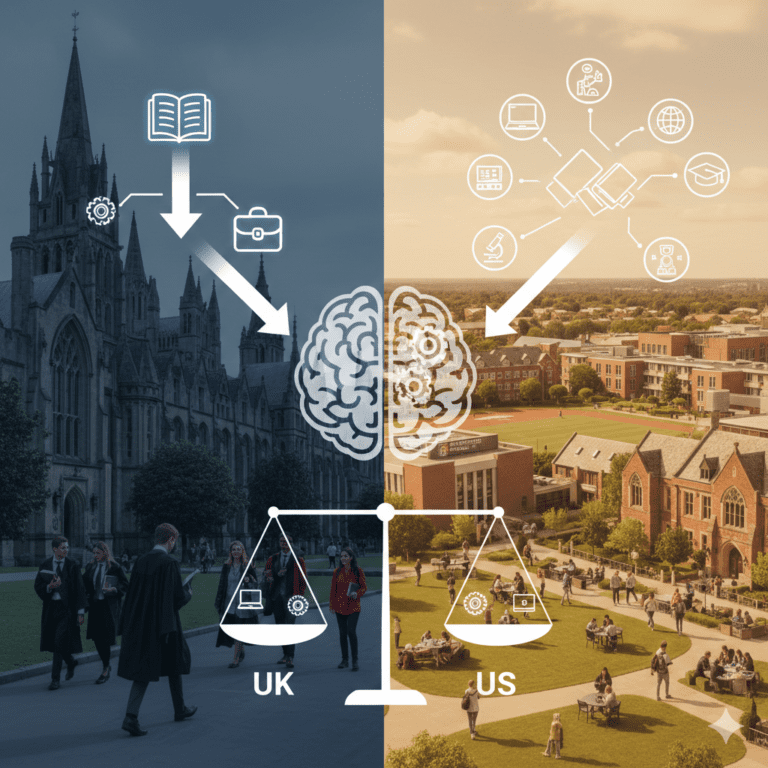Balancing the use of AI in the classroom
At the forefront of the changing educational landscape is artificial intelligence, and Ivy League institutions are balancing the integration of this technology into their classrooms without compromising the learning environment these prestigious universities offer while addressing the ethical concerns.
The Dual Nature of AI in Education
Along with the opportunities AI offers, it also poses challenges that require careful management. Recognizing that AI can be a powerful tool for students that will help them in research, writing, and personalized learning, its misuse and over-reliance will stunt the critical thinking abilities of students, impacting academic integrity, which is an issue that requires immediate attention. Quick to address this are universities like Columbia and U Penn, whose policies clearly state that AI misuse constitutes academic dishonesty, resulting in disciplinary action.
Since ignoring the AI technology is impossible, students are being encouraged to learn how AI functions, particularly large language models (LLMs), and to learn about AI’s processes to make decisions, as well as when to cite AI-generated content and also how to identify inaccuracies (often referred to as “hallucinations”) and how to prompt AI to provide sourced information. This knowledge equips students to use AI responsibly while maintaining critical evaluation skills, ensuring that AI complements rather than replaces independent thinking.
Varied Approaches to AI Integration
In the absence of a universal standard of AI use in higher education, Ivy League schools are using diverse approaches to AI integration. Some institutions are using AI tools like Virtual Labs as a pedagogical engagement to personalize education. They are tailoring the learning experiences and making them highly individualized, providing real-time feedback.
AI is used as a brainstorming or drafting tool by some faculty members, while others are fighting to preserve the traditional learning methods. However, looking at the rapid pace of the development of AI and the lack of institutional guidelines, the faculty are being encouraged to revisit their course policies and experiment and embrace new teaching methods and guide students to use AI to align with their academic objectives.
At Princeton University, the official policy states, “If generative AI is permitted by the instructor (for brainstorming, outlining, etc.), students must disclose its use rather than cite or acknowledge the use, since it is an algorithm rather than a source. Students are responsible for familiarizing themselves with and adhering to course and departmental policies regarding the use of generative AI.”
Dartmouth likewise notes, “Instructors, programs, and schools may have a variety of reasons for allowing or disallowing artificial intelligence tools within a course or course assignment(s), depending on intended learning outcomes. As such, instructors have the authority to determine whether AI tools may be used in their course.”
Preparing Students for a Digital Future
Institutions cannot turn a blind eye to the fact that we are living and growing in an AI world. Apart from its application in the classroom, the Ivy League schools need to equip their students with the right technological literacy to thrive in this AI-driven world. Students need to understand the capabilities and limitations of AI, which is a critical skill for future professionals. Courses and programs at schools like Penn and Columbia emphasize not only how to use AI but also how to critically evaluate its outputs. This includes recognizing AI-generated inaccuracies and ensuring transparency in its use, such as citing AI tools when permitted.
As noted in Forbes, undoubtedly AI can democratize education by improving accessibility; it must be implemented thoughtfully to preserve the social and collaborative nature of learning. Ivy League schools are exploring ways to use AI to foster connections, such as through AI-driven platforms that support interactive and personalized learning without isolating students.
Changing Policies
As students embark on their journey into higher education at elite colleges, they’re entering a vibrant environment designed to foster human connections, spark intellectual conversations, and shape them into independent, critical thinkers ready to make a meaningful impact. Embracing AI as a supportive tool can enhance your learning, but overreliance risks stifling your creativity and unique voice. Your success as a changemaker hinges on staying ahead, leveraging AI to amplify your ideas while ensuring it serves you, not the other way around.
By fostering technological literacy, establishing clear policies on AI use, and addressing privacy and ethical concerns, these institutions are setting a standard for responsible AI adoption in higher education.
Stay curious, engage deeply, and let your originality lead the way.
Source: Forbes, “How Ivy League Schools Are Navigating AI in the Classroom,” Christopher Rim, July 7, 2025.









